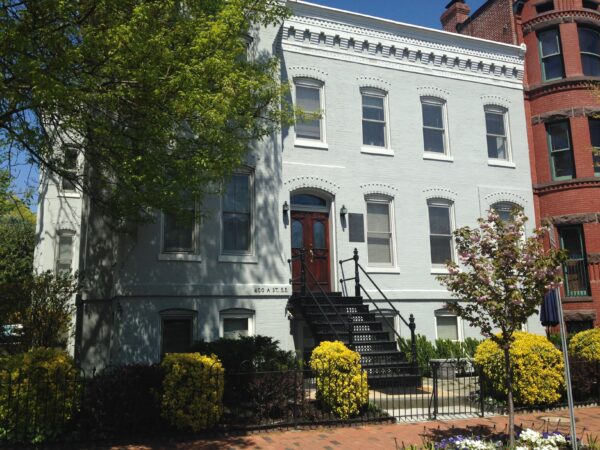
The AHA Townhouse
Graduate students weather ridicule regularly. There’s that 2006 Simpsons clip in which Bart taunts, “Look at me, I’m a grad student! I’m 30 years old, and I made $600 last year!”—in response to which Marge scolds, “Bart, don’t make fun of grad students. They just made a terrible life choice.” There’s also the so-funny-I-forgot-to-laugh diminutive “gradual students,” a term I first heard from a far-beyond-tenure professor at a far-from-middling university. (Now, that certainly spoke well of his program, not to mention his own mentoring ability.) Graduate students—overworked, indebted, and nervous about the future—produce original scholarship in a society that regards them as misguided at best.
But history itself is mocked, and departments face significant tests. At some institutions, these are existential. Funding, salaries, faculty lines, physical space, and, yes, graduate programs yield to budgetary scalpels that cut more aggressively each year. The discipline weathers abuse from political backbenchers and so-called opinion leaders who think history teaches nothing practical. Many humanities leaders are counterattacking: the modern university not only preserves history and all the other arts and sciences; it promotes them in the public interest, for the common good.
But what role do advisers, departments, and universities see graduate students playing in this fight? As humanities professors make the case that college should be about more than providing undergraduates with “job training,” many use those very words to refer to their graduate programs.
Much conversation within the AHA centers on teaching, including its role in graduate curricula. Teaching—teaching well—promotes democratic participation: inclusiveness, willingness to listen, confidence to defend a position. Graduate students should get practice teaching in order to develop professional skills, certainly. But simply helping undergraduates approach contemporary issues by asking, “What’s the history of this problem?” helps secure our future. It can be a struggle to articulate the big questions behind a dissertation, but I would hazard that graduate students believe in history’s power to change minds by showing that things haven’t always been this way. They changed once (at least). They will change again. We don’t predict the future, but we do know our very impermanence is opportunity for action. We’ve got the research to prove it. And some of us are graduate students.
History graduate programs are therefore a public good. You typically don’t hear that in soaring commencement addresses, but you probably don’t hear it from program directors, either. The difficult path to a PhD winds through a mind-expanding landscape that equips one with the ability to participate intelligently in a variety of public conversations—to shape the future. This, then, is nothing to ridicule.
This work is licensed under a Creative Commons Attribution-NonCommercial-NoDerivatives 4.0 International License. Attribution must provide author name, article title, Perspectives on History, date of publication, and a link to this page. This license applies only to the article, not to text or images used here by permission.


